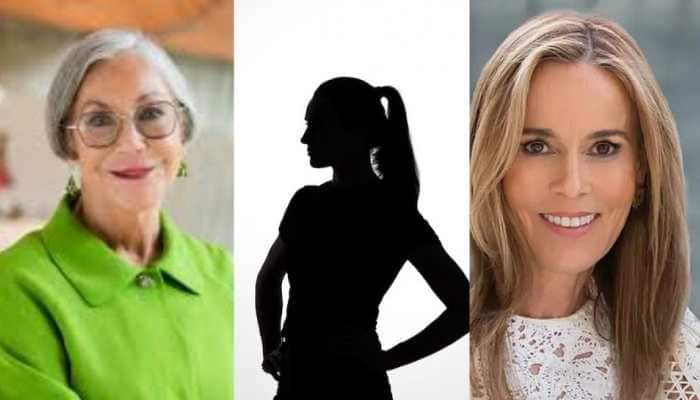Why Barack Obama and Hillary Clinton should not forget Shirley Chisholm
Nearly eight years back, it was a huge moment in American history when for the first time a Black man became the president of the United States.
Trending Photos
)
There is a saying in the Hindu tradition that when we break a coconut, the last smash before it splits is not the only one that is significant. We should not forget the initial 2-3 strikes, which weakened the coconut enough for it to collapse.
Every struggle in world history that reaches a successful culmination has the blood, sweat and toil of a lot of unsung heroes. Those who thought of big ideas and saw big dreams but did not reach them – yet they significantly made the path for those who followed in their footsteps a lot easier.
Today a woman running for president in America is not something very out of the ordinary. Her candidature has been spoken about over issues more than her gender. Though if elected, she would still be the first woman president of the United States.
Nearly eight years back, it was a huge moment in American history when for the first time a Black man became the president of the United States.
Yet in this din of Donald Trump Versus Hillary Clinton exchange of infra dig barbs and below the belt charges, we forget that Hillary Clinton as a woman is accepted as a presidential candidate today and Barack Obama became the first Black president only because a woman in the early 1970s believed that it was possible for both a woman and a Black citizen to occupy the White House. That Black woman who thought of these bold ideas first was Shirley Chisholm.
Shirley Anita St. Hill Chisholm was born in the United States of the 1920s when race, slavery, segregation, gender were larger than life issues – they dominated public psyche and had an overbearing influences on decisions that determined the course of the country.
Born to immigrant and labour class parents from Barbados, Shirley was sent back to her maternal grandmother for early education – something that she credited for her free thinking and solid grounding.
She returned to the United States to become a teacher but soon jumped into the politic scene of Brooklyn, New York. By 1968, she ran for the US House of Representatives when she launched her famous “Unbought and Unbossed” campaign that helped her stage an upset victory to become the first Black woman to be elected to the Congress.
Shirley had famously said once: "If they don't give you a seat at the table, bring a folding chair." Her election to the Congress was exactly that. It was unheard of a Black woman being a people’s representative then.
Post-election, greater challenges lay ahead of her. There were attempts to sideline her and she was handed committees like farming which were not relevant to her background or her urban constituents. Yet she made something of it. Not only did she protest against her assignment – this was again a novelty – she nevertheless managed to come up with ingenious ideas like the foods stamp program. A year later she became one of the founding members of the Congressional Black Caucus.
By and by her work as a parliamentarian bore fruit and she was given more prestigious portfolios including those of her choice like Education and Labour.
By 1972, Shirley Chisholm’s ambitions grew and she threw her hat in the ring to get a nomination as a Democratic presidential candidate.
It would be one of her most difficult yet rewarding trials.
At the onset Chisholm exhorted: "I stand before you today, to repudiate the ridiculous notion that the American people will not vote for qualified candidates, simply because he is not white or because she is not a male".
But that is not what America of 1970s thought.
There were assassination bids on her and she had to go court simply to fight for the right to participate in a televised debate.
Robert Gottlieb who were her student coordinator recalled in Smithsonian magazine: “So I’m 21 years old. I'm a senior in college. I’m raring to go…And my first trip was to North Carolina to go to some colleges to try to organize students. And I had to wait until we received the bumper stickers and brochures that we could hand out. Coming from the printer they were in boxes. . . . but on the outside of the box you had one bumper sticker. On the other was one brochure, ‘Chisholm for President.’ I took a plane to Raleigh, North Carolina. And I go to pick up my bags and the brochures and bumper stickers from the luggage carousel. And scrawled all over it was ‘go home n*****.’ That's how the campaign began.”
Shirley campaign also suffered because it was also poorly managed and chaotic. More than anything else she faced hostility because she was a woman, including from male members of the Black Caucus.
Perhaps the reason why she said of that time: "Tremendous amounts of talent are lost to our society just because that talent wears a skirt."
One of the most interesting moments in the campaign came when Chisholm went and met Alabama Governor George Wallace after he was shot at and left paralysed. Wallace was a segregationist White who was canvassing on racist lines. Many criticized her for the move, but Shirley stood her ground because for her humanity came first.
Though she lost out on her presidential nomination bid ultimately, she has gone down in history as the first Black to run for the president’s post and the first woman for the Democratic candidature. Clearly, Shirley was much ahead of her times and was ready when America was not.
Later in life after serving for many years as a Congresswoman, Shirley seemed disillusioned with the state of affairs and quit politics to return to being an educator and author.
In retrospect she played down her achievement but elucidated about why she had thought of running for the top office: “I ran because most people thought the country was not ready for a Black candidate, not ready for a woman candidate. Someday, it was time in 1972 to make that someday come."
Unfortunately, Shirley died in 2005 four years before Barack Obama was elected as the first Black president of the United States. But fortunately for America, Shirley’s dream of breaking the glass ceiling came true.
Once asked about how she would like to be remembered, Shirley had quipped in her fearless style: “I’d like them to say she was someone who had guts”.
When Barack Obama conferred on her the Presidential Medal of Freedom honour posthumously in 2015, he acknowledged proudly, “Shirley Chisholm had guts!”
Stay informed on all the latest news, real-time breaking news updates, and follow all the important headlines in india news and world News on Zee News.
Live Tv







)
)
)
)
)
)
)
)
)
)
